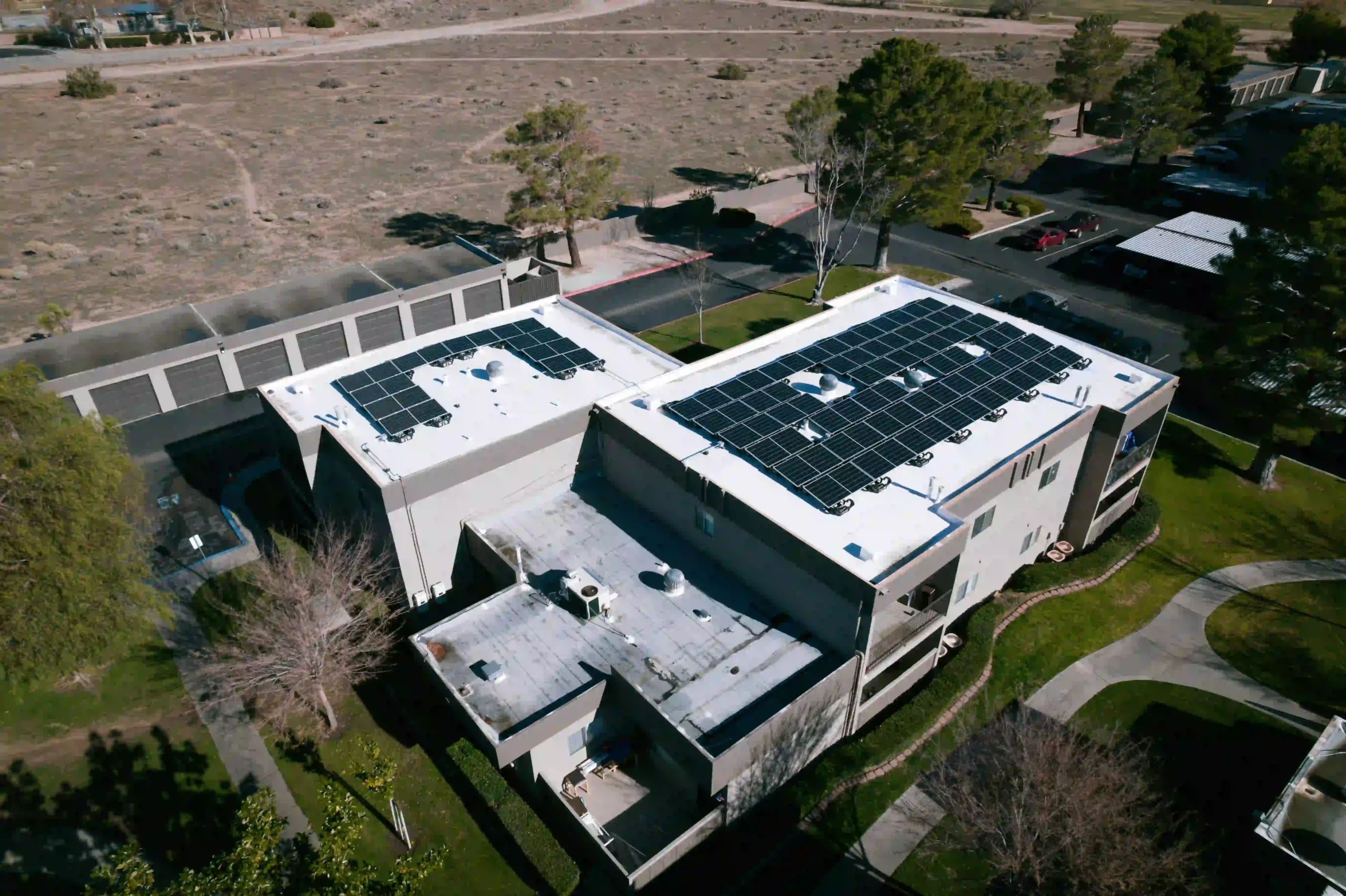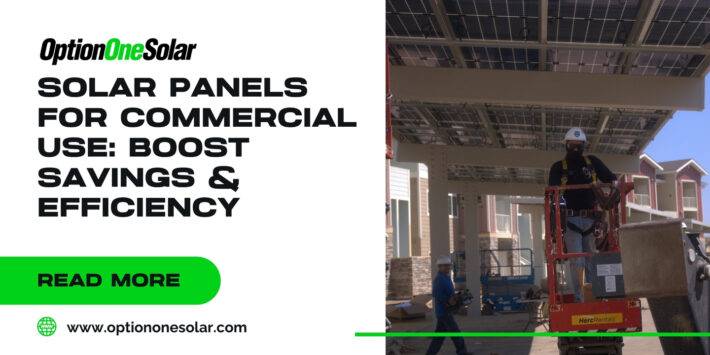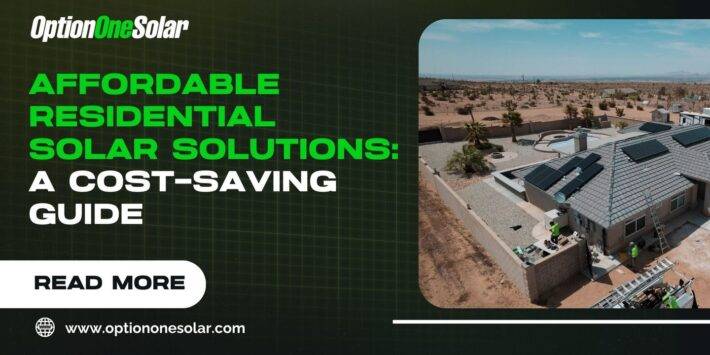Commercial solar power offers financial and environmental perks for businesses, offset by considerations of initial costs, weather dependency, and installation space. This concise overview presents the key pros and cons, aiding companies in making an informed choice about solar energy investment.
Pros of Commercial Solar Power
The pros of commercial solar power include overhead cost savings, environmental benefits, tax benefits, improved brand image, and long-term investment.
Overhead Cost Savings
One of the primary benefits of commercial solar power is cost savings. By installing solar panels, businesses can save a considerable amount of money on their monthly energy bills, thereby reducing their overall operating costs.
The cost of solar panels has decreased significantly over the past few years, making them more affordable for businesses of all sizes. Additionally, there are many government incentives for businesses that install solar panels, which can further reduce the installation cost.
Commercial Solar PPA (Power Purchase Agreement)
Power Purchase Agreements (PPAs) offer substantial benefits for businesses adopting commercial solar energy without the initial capital investment.
Under a PPA, a third-party solar provider installs, owns, and maintains the solar system on the business's property, allowing the business to purchase the generated electricity at a predetermined, typically lower rate than the utility company.
- This arrangement provides businesses with immediate energy cost savings while eliminating the need for upfront capital investment and maintenance responsibilities.
- PPAs also offer the advantage of stable and predictable energy prices, shielding businesses from the volatility of traditional energy markets.
- Furthermore, these agreements often include performance guarantees, ensuring that the solar system will generate the expected amount of electricity.
- By entering into a PPA, businesses can seamlessly transition to clean, renewable energy while minimizing financial risk and reaping the benefits of cost savings and enhanced environmental sustainability.
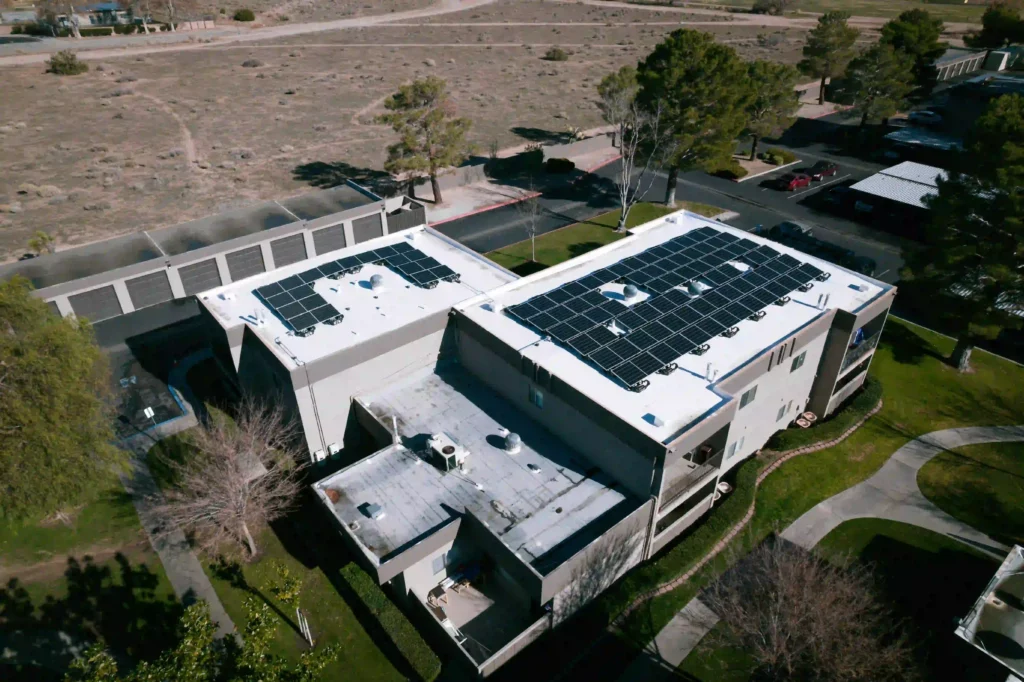
Tax Benefits
Businesses that install solar panels are eligible for a range of tax benefits, including the federal investment tax credit (ITC), which can cover up to 30% of the cost of the solar installation.
You may also receive up to an additional 10% tax incentive on American made products. State and Federal bonus depreciation is 60% in 2024, and drops to 40% in 2025.
Additionally, many states offer tax incentives for businesses that use renewable energy sources like solar power, such as PACE program.
Tax benefits can help businesses offset the upfront costs of installing a solar system. However, tax benefits are not available in combination with solar PPA.
Long-Term Investment Returns (ROI)
Commercial solar power is a long-term investment that can generate significant returns. While the upfront costs can be high, the savings and benefits over the lifespan of the solar system can outweigh those costs. Solar panels have a lifespan of 25-30 years and require minimal maintenance, which means that businesses can enjoy cost savings for decades to come.
Improved Brand Image
Companies that use renewable energy sources like solar power can improve their brand image by demonstrating their commitment to sustainability and environmental responsibility. This can be particularly important for companies trying to appeal to younger consumers who are increasingly concerned about the environment and climate change.
Environmental Benefits
Commercial solar power is an environmentally friendly source of energy. It does not emit any harmful pollutants or greenhouse gases, which makes it an ideal choice for businesses that are committed to reducing their carbon footprint and promoting sustainability. By using solar power, businesses can reduce their reliance on non-renewable sources of energy like coal, oil, and natural gas, which are responsible for a significant amount of greenhouse gas emissions.
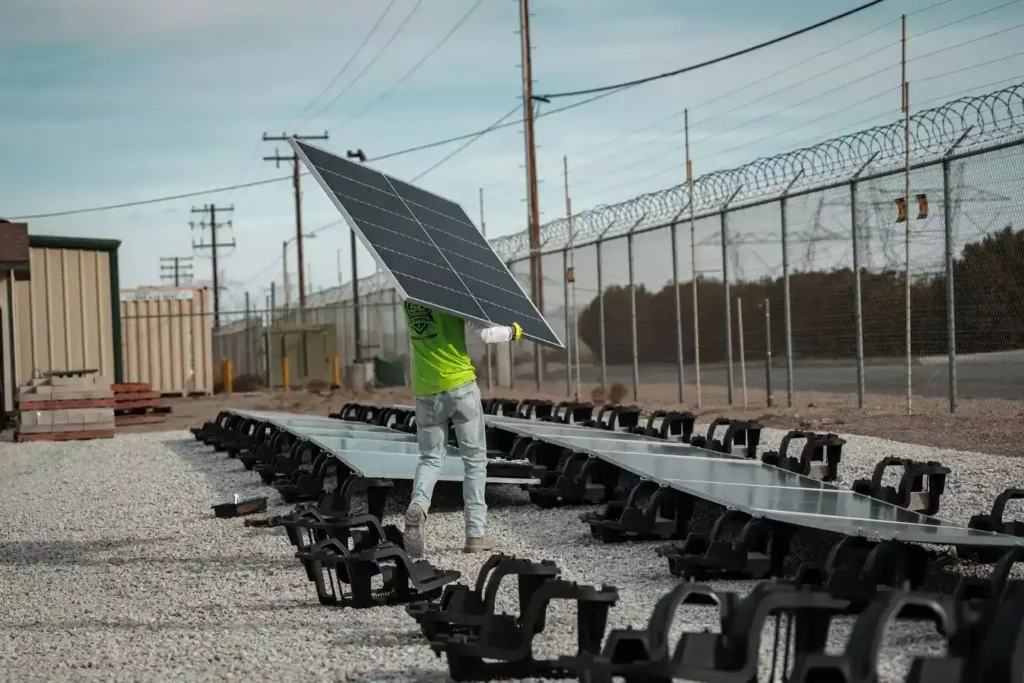
Cons of Commercial Solar
However, there are also some cons of commercial solar power that businesses should consider before investing.
Upfront Costs
The initial cost of installing a commercial solar system can be high, which can be a significant barrier for businesses with limited capital.
However, financing options like solar leases and power purchase agreements (PPAs) we mentioned above can help businesses overcome this barrier without problems.
With a solar lease, the business leases the solar panels from a third-party provider and pays a fixed monthly fee, while with a PPA, the business purchases the electricity generated by the solar panels at a lower rate than the utility company.
Weather-Dependent
Solar power is weather-dependent, which means that it may not be available during cloudy or rainy days.
But with today’s advances in solar technology, battery storage, and grid integration are addressing this issue.
Businesses can now install battery storage systems that can store excess solar power for use during periods of low sunlight. This also becomes a benefit of having backup power during outages.
Additionally, businesses can connect their solar systems to the grid and use net metering to offset the cost of electricity during times when solar power is not available.
Space Requirements
Commercial solar panels require space to install. Businesses that have a limited roof or ground space may not be able to install a solar system that meets their energy needs.
However, the advances in solar PV technology have led to the development of more efficient solar panels that require less space than traditional older panels.
Maintenance Costs
While solar panels are generally low maintenance, they do require some periodic maintenance and cleaning, which can add to the overall cost of the system.
Solar panels are designed to withstand various weather conditions and have no moving parts, resulting in minimal wear and tear.
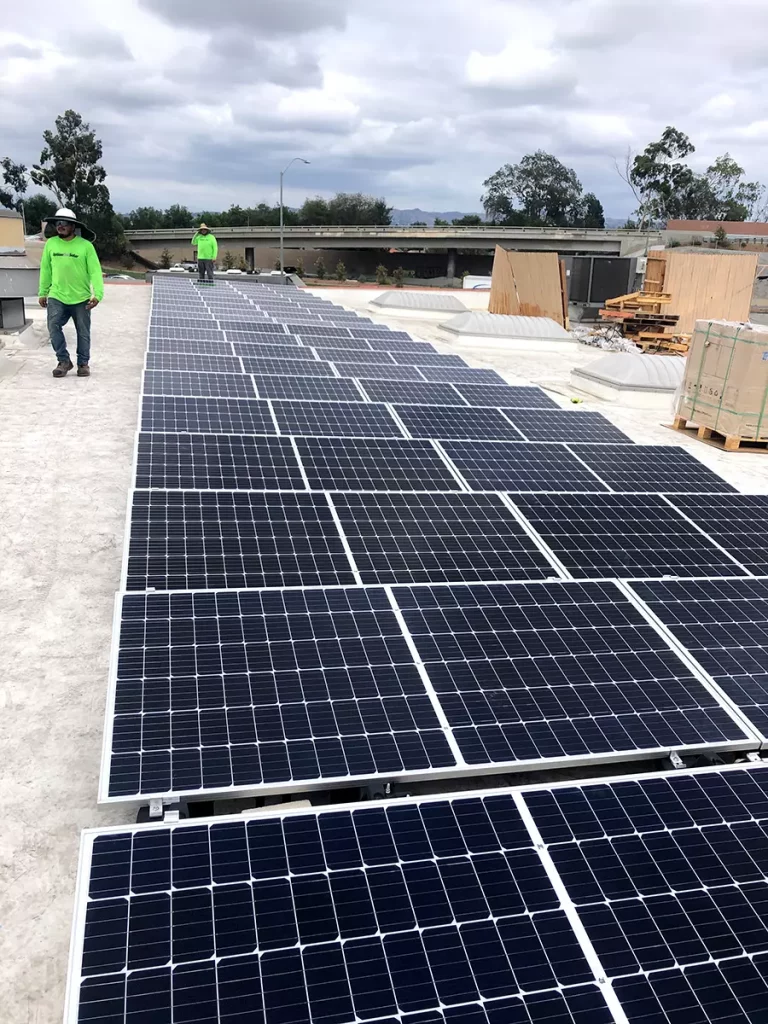
Commercial Solar FAQs:
- What cost savings can businesses expect from installing commercial solar panels?
- Installing solar panels can significantly reduce monthly energy bills, and with the declining cost of solar technology and available government incentives, businesses can achieve considerable overhead cost savings over time.
- How do solar PPAs work and what are their benefits for businesses?
- Under a solar PPA, a third party installs and maintains a solar system on the business's property. The business then buys the generated electricity at a reduced rate, which can provide immediate energy cost savings without needing an initial capital investment.
- What are the tax incentives for commercial solar installations?
- Businesses can benefit from the federal investment tax credit (ITC) and various state incentives, which can offset up to 30% of the solar system's installation costs.
- What long-term financial returns can commercial solar power provide?
- Despite the upfront costs, solar power systems can deliver significant financial returns over their 25-30 year lifespan due to the savings on energy bills and minimal maintenance costs.
- What are the main disadvantages of commercial solar power?
- The primary cons include the high initial installation costs, the dependency on weather conditions for energy generation, and the need for adequate installation space. However, financing options, battery storage, and grid integration are available to help mitigate these challenges.
Sum Up
In conclusion, commercial solar power presents a compelling opportunity for businesses to achieve a higher return on investment (ROI) while also benefiting the environment.
By investing in solar energy, businesses can enjoy significant cost savings, tax incentives, and a positive brand image that resonates with environmentally conscious consumers.
Despite the initial upfront costs, the long-term financial and environmental benefits of solar power far outweigh these expenses.
The advances in solar technology, battery storage, and grid integration help address concerns related to weather dependence and space requirements, making solar power an increasingly viable option for businesses of all sizes.
As more businesses embrace commercial solar power, they will not only reduce their operating costs but also contribute to a more sustainable future for generations to come.
Thinking about going solar for your business building? Book a consultation with one of our commercial energy experts at.
If you want to know more about commercial solar, visit our commercial solar page for more information.

